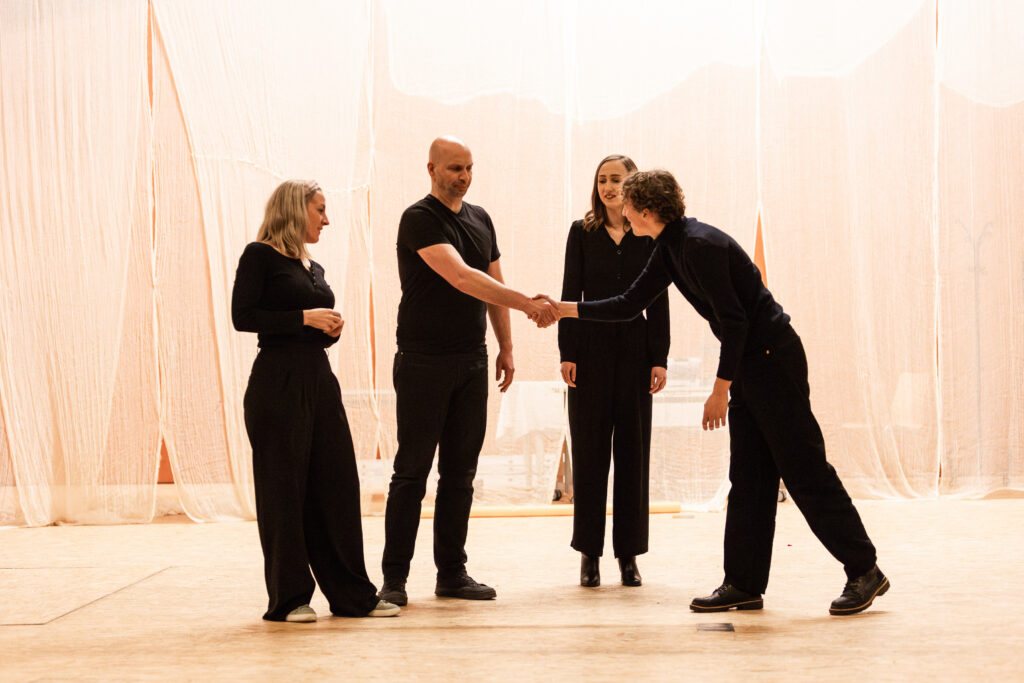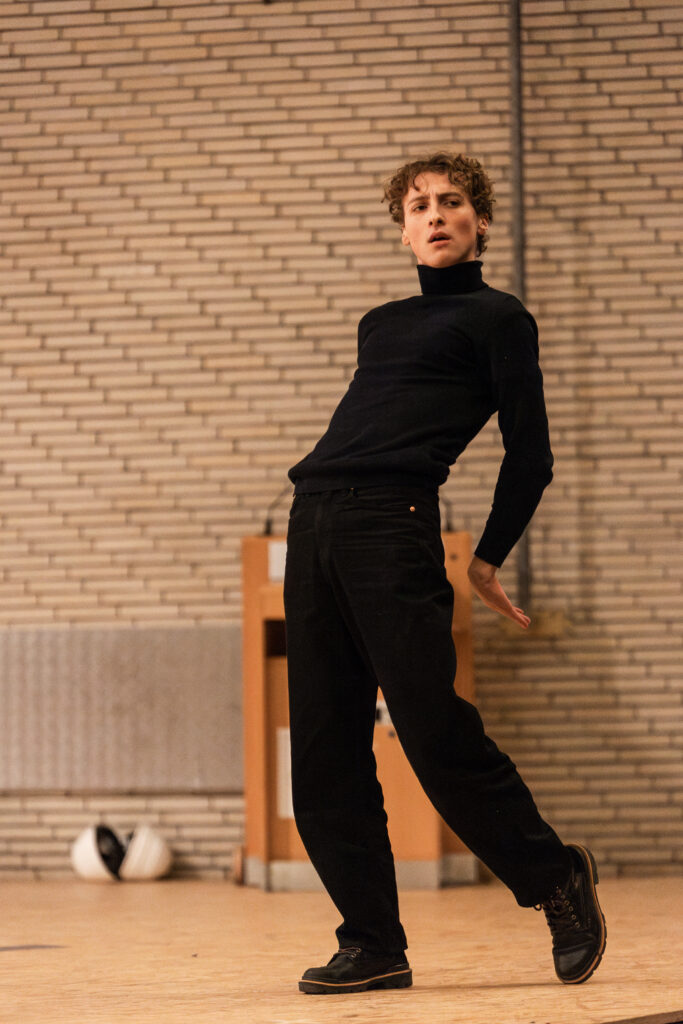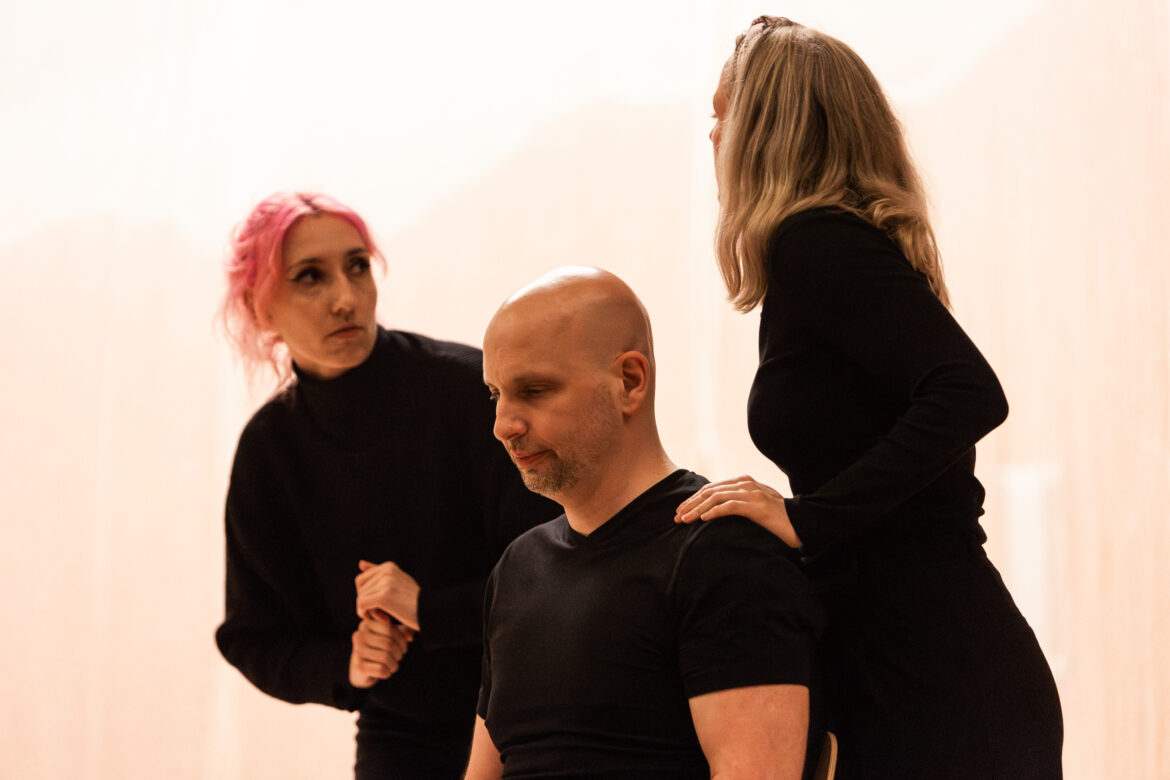By Bita Shakoori
The American Dream by Edward Albee (1959) is the second play of Specters, and invites the audience into the dark and strange life of Mommy, Daddy, and Grandma.
My conversation with Felix and Henrietta, the directors for The American Dream, though held separately, starts the same-both tell me that they didn’t like the play when they first read it. While Felix found the play to be clunky and awkward, its characters completely unlikable, Henrietta had a more visceral reaction to it. “I had to read it three times,” she remembers, “I just thought to myself: ‘No, that’s not funny. I don’t see it.‘ It sort of struck me and affected me in an uncomfortable way.” But they warmed to the idea of The American Dream eventually. Felix likes that the play isn’t “accommodating”. Instead, he says, “it’s like a thick-headed friend who you can sometimes have good conversations with, but who can also drive you crazy.“
As toxic as Mommy is, it has become quite reassuring for all of them, because it’s their toxic and it’s familiar to them.
Kate Irmer, actor, on the character of Mommy
This sense of being driven to insanity is rooted in the absurdist nature of the play. „The challenge with this play is to maintain the absurdity–you want that, but you don’t want it to be so out of hand that these people are just caricatures,“ Kate, the actor for Mommy, tells me. She thinks of her character as the villain, power-hungry and manipulative. “That’s not to say she doesn’t have her motivations. But she’s awful. She’s a terrible person, and she perpetuates these really toxic patterns this whole family has fallen into.” But Kate also acknowledges that “as toxic as it is, it has become quite reassuring for all of them, because it’s their toxic and it’s familiar to them.” Henrietta feels like she “can’t take her eyes off ” the family, “because those dynamics are just so weird, and you can tell by looking at them that things will clash and the characters that are in it just don’t see it. They can’t get out of it.”

Felix on the other hand thinks of them as a very American family. We talked a lot about the idea of the American Dream, its surviving relevance, and about the things that are distinctly American about the play. All three agreed that what used to be viewed as American has tinged our understanding of a shared culture. “Just think of American as a prototype of Western culture,” Felix says. To Kate, the American Dream has morphed into the “domestic dream” over the years, something we are all told to aspire to. Henrietta says that because of “capitalism and how it structures society,” it now applies to other cultures, too, “this idea of having to strive for something larger than yourself–you just have to work hard enough.” She doesn’t think the play is looking to (re)define the concept but to comment on it “by showing how ridiculous it is to strive for this idea because the majority of people will not be able to achieve it.“ One way the American Dream-crew brings these ideas to the stage is through the boxes that come up in the script. “All of them are empty,” Felix tells me, “They promise a lot on the outside, but don’t fulfil their promises on the inside.” Felix thinks that for the family the American Dream is all “hollowed out because they lack a child.“ To them, a child is as consumable as any other product. As with Trifles, the first child Mommy and Daddy adopt is a character that is often referred to but never seen by the audience. Felix wanted to change that, using props and editing the script to give that first child a voice.

Young Man, a character that comes in quite late, looking perfect and perfectly American, becomes Mommy and Daddy’s second chance at adoption. I tell Henrietta that I find him to be one of the most relatable characters in the play. She frowns a little, smiles. “Oh, interesting.” “You don’t agree?” I ask. “No, I think I don’t. But maybe I’m too far removed from his age.” What she means is: too far removed from a generation that is almost forced to care deeply, anxiously, about appearances for the sake of (online) connection. We find common ground when discussing one of his lines: “I have no emotions. While I know I cannot relate I must be related to.” “That is my favorite line in the entire play,” she tells me, “It sums up what this play wants. For that reason, it is super important for that character to show up at some point.”

Young Man shows what the family looks like to an outsider, “how ridiculous it is what they did to the first child.” Of course, he serves a different purpose to the characters in the play than he does to the audience. “I think Mommy has hope for him,” Kate says, “not for him personally, but for what he can do for her, and how he can elevate the status of the family.” To Felix, Young Man is the only character that can actually succeed at achieving the American Dream “because he has no emotions. He doesn’t bring any personal thing to any situation. Everybody can just project their expectations onto him and he will follow.” Young Man’s superficiality and success is, to Felix, “very contemporary and probably forever will be.”
Violence, for us, often is disguised as play. I think that’s very absurd, but it’s actually very realistic in its absurdity.
Felix Krebs, director
Despite its grim and strange moments, the play is interwoven with comedy. It was important to Henrietta to not turn The American Dream into a slapstick comedy, so that the characters and the play would still feel real. To Felix, a lot of the scenes are so violent that they will make the audience laugh out of sheer discomfort. “We also used the comedic potential to point out the violence. Violence, for us, often is disguised as play. I think that’s very absurd, but it’s actually very realistic in its absurdity,“ he says. Kate thinks comedy can offer relief to the audience. “When you have tense moments of drama, or something that’s horrible, especially in this–the characters don’t think it’s horrible but people watching are going to be like: ‘Look at these messy people!’–that actually works in your favor as actors. When there is so much of this grim, quite violent subtext, it makes it easier to land the lighter moments, because people want to laugh.”
I ask Felix how the two plays, Trifles and The American Dream, relate to each other, why it would make sense to see them in one evening; he tells me that they both deal with “interpersonal relationships–how people deal with each other, and instrumentalize each other and steer each other in certain directions for their own benefit. Of course, there is bound to be conflict, but I think that’s what it’s all about. I think those are the realistic moments in these plays.”


Schreibe einen Kommentar